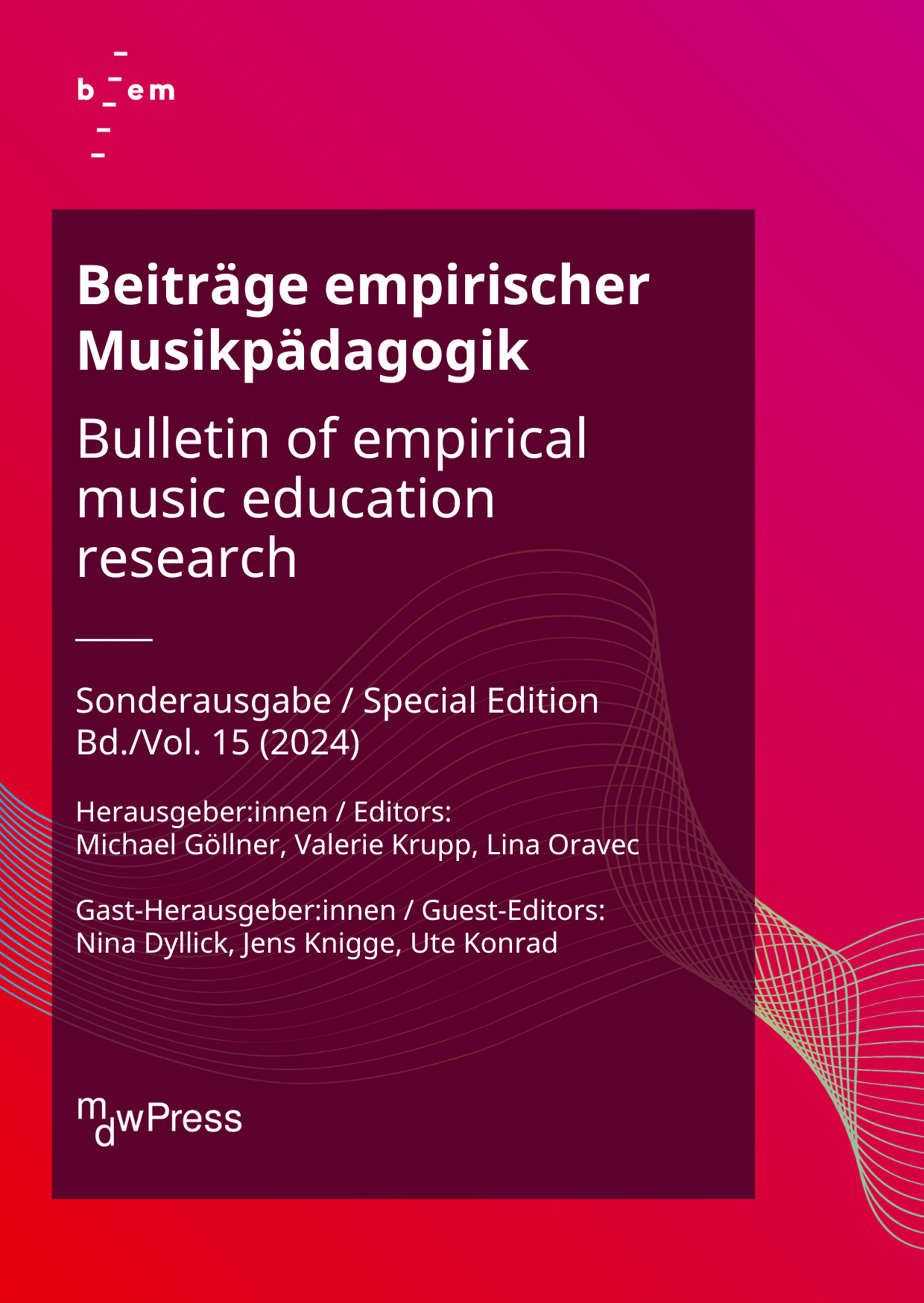Quality of Music Education and Normativity of Music Education Research
DOI:
https://doi.org/10.62563/bem.v2024238Keywords:
normativity, practice theory, philosophy of music education, comparative music education, music didacticsAbstract
The text is a contribution to the theory of scientific music education. Starting from a practice-theoretical (or praxeological) perspective, the article summarises results from international comparative music pedagogical research, philosophical theory of music pedagogy and general and subject-didactic teaching research with regard to the relationship between musical and pedagogical or educational normativity. The synopsis of sections 1–4 shows that the coherence of musically and pedagogically normative practices is decisive for successful (high-quality) music education practice. In comparative music education, this coherence should be understood as a general music pedagogical or educational tertium comparisonis. In the fifth section, this tertium comparisonis is used to compare two examples of research on music teaching characterised as learning-psychological and praxeological. The comparison reveals different discipline-specific areas of indeterminacy or vagueness. On the basis of the present study, a specific approach to fuzziness seems appropriate for the discipline of music education. The conclusion summarises the results of the article in six theses.
Downloads
Published
How to Cite
Issue
Section
License
Copyright (c) 2024 Christopher Wallbaum

This work is licensed under a Creative Commons Attribution-NonCommercial 4.0 International License.
Bulletin of Empirical Music Education Research (b:em) is published as an open access online journal. All articles are freely accessible online free of charge, there are no publication fees (Diamond Open Access). The standard licensing of the articles is CC BY-NC 4.0 (Creative Commons Attribution-Non Commercial 4.0 International (CC BY-NC 4.0))



